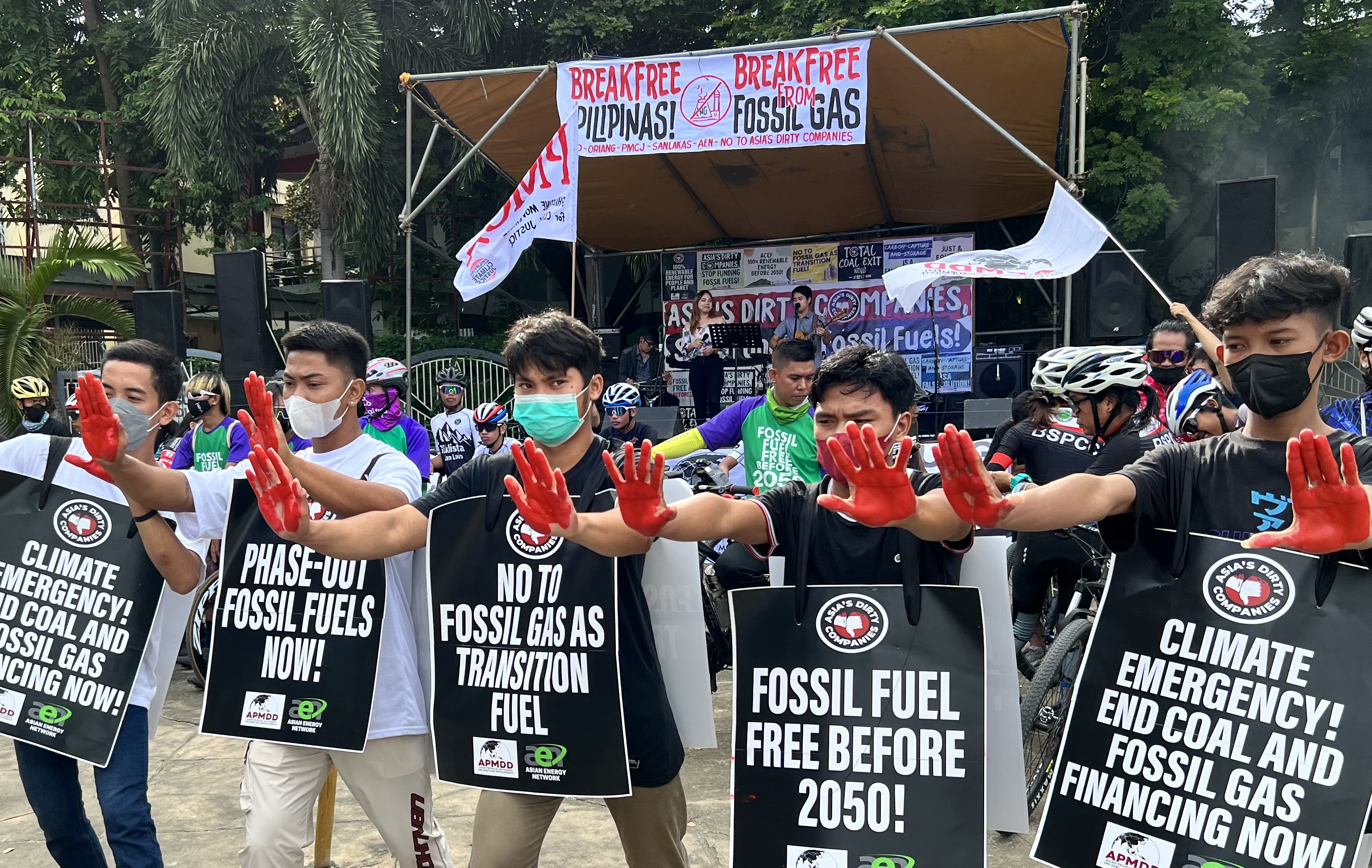Movement stalls 8 fossil gas projects
August 26, 2022

In the last five (5) months, the Philippine Movement for Climate Justice (PMCJ) and host communities of the proposed fossil gas projects in the Philippines have successfully stalled 8 fossil gas projects amounting to a total capacity of 9,792 MW and 2.17 mtpa.
Of the 8 projects, early interventions mounted by PMCJ and affected communities resulted in the cancellation of two public scoping processes for two fossil gas projects owing to the clear violations and lack of jurisdictional requirements as mandated by the country’s Environmental Management Bureau (EMB).
These successes come in light of the rapid expansion of fossil gas projects with 24 plants in the pipeline in addition to the existing 5 fossil gas plants all located in Batangas City.
In his State of the Nation Address (SONA), President Ferdinand Marcos, Jr., announced his administration’s support for fossil gas projects as an alternative to coal. Marcos Jr. is the son of the late dictator Ferdinand Marcos who was ousted in 1986 following a peaceful people power revolution.
The projects stalled include seven (7) fossil gas plants and one (1) gas processing terminal namely, the SMC – Reliance Combined Cycle Gas Turbine Powerplant and the SMC San Carlos Project in Negros Occidental, Tabango LNG Power Plant in Leyte, SMC – Converge LNG Plant in Cebu, Sangali LNG Powerplant in Zamboanga City, the Navotas LNG Power Plant in Metro Manila, and the Mariveles Samat LNG Powerplant and its processing facility in Bataan.
Crucial to the early interventions mounted by PMCJ and affected communities are legal interventions through environmental impact assessment litigation and local government unit litigation and the establishment of broad community-led alliances resisting fossil gas projects organized under the Break Free Pilipinas! Break Free from Fossil Gas Campaign.
The setback in the application process of the identified projects would mean redrawing the timelines for their construction with serious implications to related processes including securing financial closing from potential lenders.